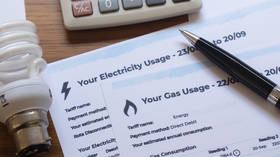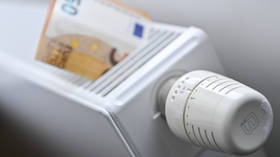EU energy bills soared 300% – von der Leyen

EU member states saw their energy bills skyrocket by at least 300% last summer after a dramatic reduction of Russian gas supplies, European Commission President Ursula von der Leyen said on Wednesday.
According to the EC chief, the bloc managed to replace the shortfall in Russian natural gas by purchasing more from alternative suppliers, as well as by increasing energy efficiency by reducing consumption by 20%.
“Russia cut its gas supply to Europe by 80% in eight months, sending energy prices in Europe soaring,” von der Leyen said addressing a joint session of the Canadian parliament. “Last summer, our energy bills rose by 300%.”
The top official alleged that Russian officials tried to blackmail Brussels by reducing the supplies as EU nations were heavily dependent on Russian gas.
She highlighted “an important role” Canada played to help tackle the energy crisis by boosting its production of liquified natural gas (LNG).
The head of the EC has previously accused Moscow of blackmailing EU countries, after Russian state-owned energy giant Gazprom stopped gas supplies to Poland and Bulgaria in April 2022.
In response, the Kremlin assured everyone that the Russian party “was and remained a reliable supplier of energy resources to its consumers and was always committed to its contractual obligations.” Moscow insisted that both Bulgaria and Poland were cut off from Russian supplies only after they rejected the gas-for-rubles scheme.
This scheme was introduced by the Russian government in response to the sanctions imposed on Moscow over the military operation in Ukraine. Moscow demanded that the nations that had imposed the penalties pay for natural gas in rubles. The scheme requires importers to open accounts in Gazprombank. They can then deposit funds in their currency of choice, which the bank converts to rubles and transfers to the supplier.
For more stories on economy & finance visit RT's business section














